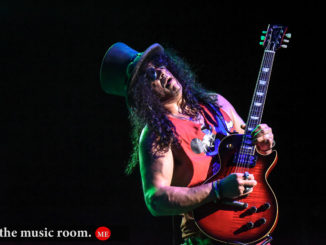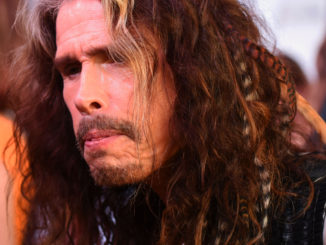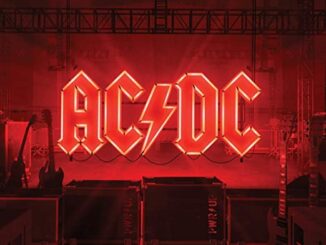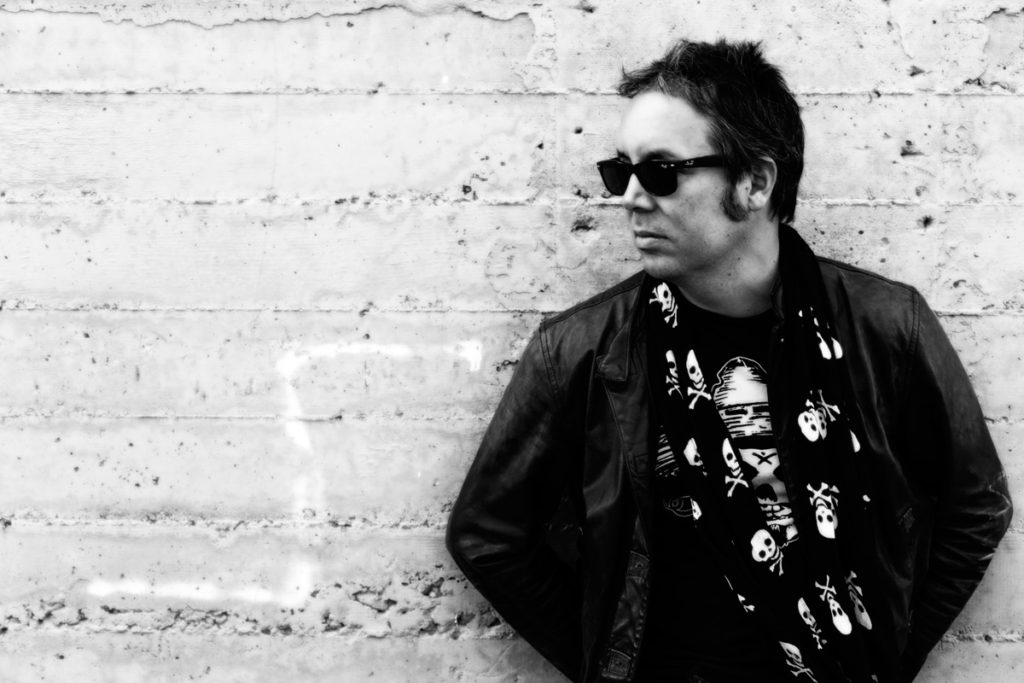
The Music Room: Alright man, thanks a lot for taking some time out to talk tonight. Obviously, a lot of people will remember Fastball from the late nineties with big songs like “The Way.” But you guys have been a very consistent band over the years and actually just released a new album. What can you tell me about that record, “Step Into Light?”
Miles Zuniga: Well, I don’t really know what to say about it other than it was certainly the quickest record we’ve ever made. We did it in like, thirteen days. It’s just very streamlined and came out really good. There wasn’t a lot of chin scratching on this one.
TMR: It seems like the easy thing to do would be to live off of the past, but you guys certainly have a long discography. Why is it important to Fastball to continue to make new music?
MZ: To me it is. I think that the best songs have yet to be written possibly, you know? I like people that still continue to grow. I mean, the old songs are always there so you can always do them. The guiding light is someone like Bob Dylan. Though lately he’s stopped writing new material and is just doing Sinatra covers now. But the guy’s earned it at this point…he’s in his seventies. For the longest time, he was making new music all the time. Those records he did in the 2000’s…man, those were just knock outs. “Time Out of Mind” and “Love and Theft” those records were great. Those records were forty years after he started. It’s amazing.
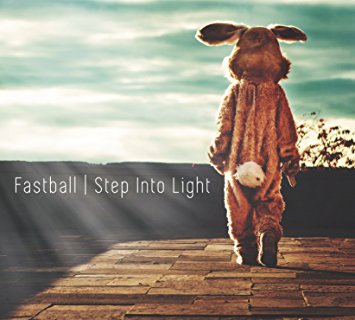
TMR: Back in the late nineties and early 2000’s there were a lot of labels placed on the music, whether it be grunge or alternative. Luckily, now it seems like those labels have been shed a bit. Now there is a lot of emphasis on…or interest in locations and scenes. Being from Austin, can you tell me what that scene has meant for you guys? There has certainly been a light shined on Austin over the years with things like SXSW.
MZ: I don’t know what it’s like now because I’m an older guy and I don’t really go out and check stuff out the way I did when I was younger. Then everybody’s on the road so everyone comes through town…everybody. Dolly Parton, Tom Jones, Kendrick Lamar…you name it, Neil Diamond. So there’s a lot more to compete with if you are a local band. You can be like hey, will you come see my show? And people will be like, sure…if I don’t go to see Tears for Fears or Elvis Costello (laughs.) It’s just crazy competition. So I would imagine that it’s harder for a new band to get anybody to come see them as opposed to when we started. Austin’s always been a great town for music, and it always had its road acts but it wasn’t insane. It was a very supportive community and the rent was cheap.
There were scenes. There were people playing a club we played all the time called The Electric Lounge. That was a certain kind of scene. There was a club called The Back Room, which was more of the heavy metal ball park. They had their bands. Then there were other dirty, toilet bowl, punk rock type clubs. So there was a lot of different music and a lot of support infrastructure from like minded individuals. For all I know it’s still that way, but the rent has gone up like two thousand percent. It’s a lot harder to have a band without working three jobs. I don’t think I ever worked a job, and if I did, I didn’t last long (laughs.) Rent was a hundred and fifty bucks…so it was easy to make rent.
TMR: You talked about bands on the road. You guys just finished a tour with Everclear, is that right?
MZ: Yeah
TMR: How was that?
MZ: Fantastic. Great. A lot of people came to see us. We were the very first band and there would be a lot of people there right at the start. It was great. It wasn’t a lot of people parking the car while we were playing. I love Everclear. They rock and Art (Alexakis) writes such great songs. It was such a good pairing. It was a good lineup and got along with everybody. It was seven weeks so it was a pretty healthy length of time to be out on tour.
TMR: At the risk of sounding like the old guy, I just love this period of music. It’s so great to see you guys out there and Everclear, Collective Soul, Tonic, Goo Doo Dolls, Our Lady Peace…it’s cool to see that it has come back full circle without feeling like a retro or dated thing.
MZ: I just like playing music and I try not to think too hard about it. But I also try to resist the nostalgia thing, you know? It’s easy to fall into that if you’re not careful. Certainly, promoters want to package things that way because I guess to them it’s a no brainer…get them on a bill with Smashmouth and Sugar Ray and they can all do six songs (laughs.) I’m not so into that. All my heroes are…I like people like Stevie Ray Vaughan or Los Lobos…The Allman Brothers. I’m actually more into that kind of setup where they are great musicians and they are just going to play. Maybe they’ll play some songs you know, but it doesn’t really matter because they are so great. That’s kind of the way I grew up. That was the kind of music that was around me and what I would see.
TMR: One of the differences between Fastball and a lot of the other bands is that with you guys the foundation is still in tact…you, Tony (Scalzo) and Joey (Shuffield.) That is something that is pretty rare. How do you account for that staying power and keeping that in tact?
MZ: Oh I don’t know, the band just never broke up…though there were plenty of times when we probably should’ve. I really don’t have an answer. What some bands do is if there’s one guy who writes all the tunes, or the one guy who’s kind of the front guy or whatever, a lot of the times they’ll kick everyone else out and then they can keep all the money. It’s the same guarantees they did when they were splitting it five ways but now they get to keep all of it or almost all of it. They just pay guys a flat fee to be in the band. We’ve always really been a band. I think that the fact that there are two song writers is part of the stability for sure. Two singers and song writers, and all the material is coming from these two people. Maybe if it was just me and I wrote all the tunes maybe I’d get greedy and be, “You’re fired and you’re fired” (laughing.)
I’ve also always thought that original members are important and once a band loses key original members the band is never the same. Case in point, like R.E.M. The drummer quit…I mean it was amicable, but Bill Berry left R.E.M. And you think, well he’s just the drummer but they were never the same. Or even Steven Adler was fired from G n’ R. I don’t ever feel like they were like they were on that first record. I think part of it is because of him. So I am a big fan of the original lineup. My favorite bands never changed their lineup. If they did, they broke up. Zeppelin…they broke up. The Police…broke up. They didn’t mess around and say we’re just going to get another drummer. You can’t, that’s what makes a band special.
TMR: Give us an idea of how it is different being in Fastball today in 2017 as opposed to how it was in 1998?How have things changed in how you approach the business?
MZ: That’s exactly that, it’s more like a business. I hate to use the word job, but I’m more professional in what I’m doing. I try to take care of myself so I can play a good gig. I mean, that’s what I’m here for…to play the gig. It wasn’t always that way. Back in ’98 I was probably more interested in having a crazy, good time and didn’t really care too much about the gig. I mean I wanted to play the gig, of course, but there were plenty of nights when I was inebriated or messed up. I never knew what state I would be in when show time rolled around. I kind of regret that. I wish I had been a little more on point because people were paying money to see me. I definitely am now that way. I’m conscious of what we are doing. I try to make sure I am in the best possible frame of mind to play music. It’s still unpredictable because it’s music and not a regular job. I haven’t worked a regular job in so long, but I do know that there are days when people definitely phone it in. There are days they go into work and say F-it, I really don’t feel like being here. I’m just going to do the bare minimum I’ve got to do. The boss won’t notice, and no one will notice…it will be fine. If I did that I would feel like crap. I want to be there, and if I don’t feel like being there I do whatever mind tricks I can until I do. I don’t want to phone it in. To me, that’s like the biggest sin in the world.
TMR: As a fan, that is great to hear.
MZ: Well yeah, what else are you there for? But it can be a challenge because being on the road wears you down. The longer you are out there…like I’m talking to you from a hotel room in St. Louis. I wish it was in St. Louis. We’re like really far away from it. There’s nothing to eat. There’s a Bob Evans (laughs.) It’s really depressing. It can wear you down to where you lose your mind. You know you go for a run. You do what you’ve got to do. Unfortunately, it’s geared to self -medicate and that’s where the trouble starts. That’s where people go spiraling down. It really is about discipline.
TMR: Well, on Thursday night you guys will be in Cincinnati…in the heart of downtown Cincinnati at the Taft Theatre Ball Room.
MZ: GOOD!! (laughs)
TMR: I guess that’s a good thing. For people coming out to the show…obviously, some people get stuck in one period of time but you guys have constantly made music over the years for the most part. How do you guys build the setlist, and what can we expect?
MZ: We’re trying to do something off every record. We’ve really been leaning into the “Keep Your Wig On” record (2004) a lot just because there are some of the best songs on it and no one knows about that record. It really is one of the best Fastball records. Of course, we do all the hits and stuff. It’s more about tempos and key signatures because if we play too many mid tempo, eighth note songs it gets boring for everybody. It’s boring for the band and it’s boring for the audience. We have a pretty good range of material and we change it around. We had a forty-five-minute set that worked great on the Everclear tour and we ended up playing it almost every night, but now that’s about forty-five-minutes short (laughs.) To be honest, we’re still experimenting a bit for our show. It changes from night to night. We don’t play the exact same set. It’s ninety minutes and there are lots of opportunities to try something different. It just depends night to night what we’re going to do.
TMR: And stuff off of the new record I assume?
MZ: Oh yeah, of course. We’re doing about five tunes off the new record, I think. And we do “The Way” of course, and “Out of My Head.” We do “Sooner or Later” and “You’re an Ocean.” Those we do pretty much every single night.
TMR: It sounds like it’s going to be a good night.
MZ: Yeah, it’s going to be a great night.
TMR: We’re looking forward to it. I know you are on an off night, so I really appreciate you taking the time to talk to me. I’ll let you get back to your night where ever you are by St. Louis. Looking forward to seeing you Thursday night in Cincinnati.
MZ: No worries, thank you.
Get your tickets to see Fastball this Thursday night at the Taft Theatre Ballroom here!!!
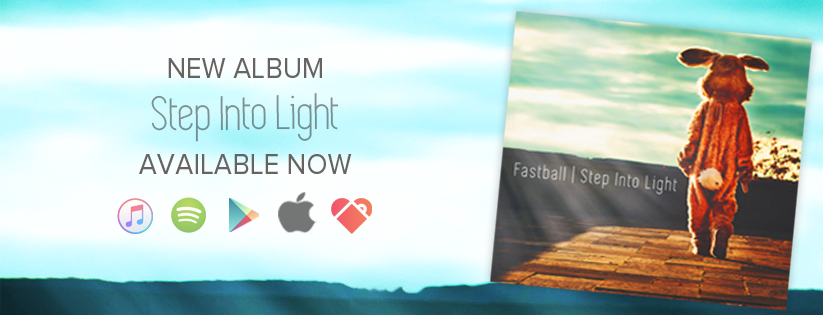
www.facebook.com/fastballtheband
www.twitter.com/fastballtheband

